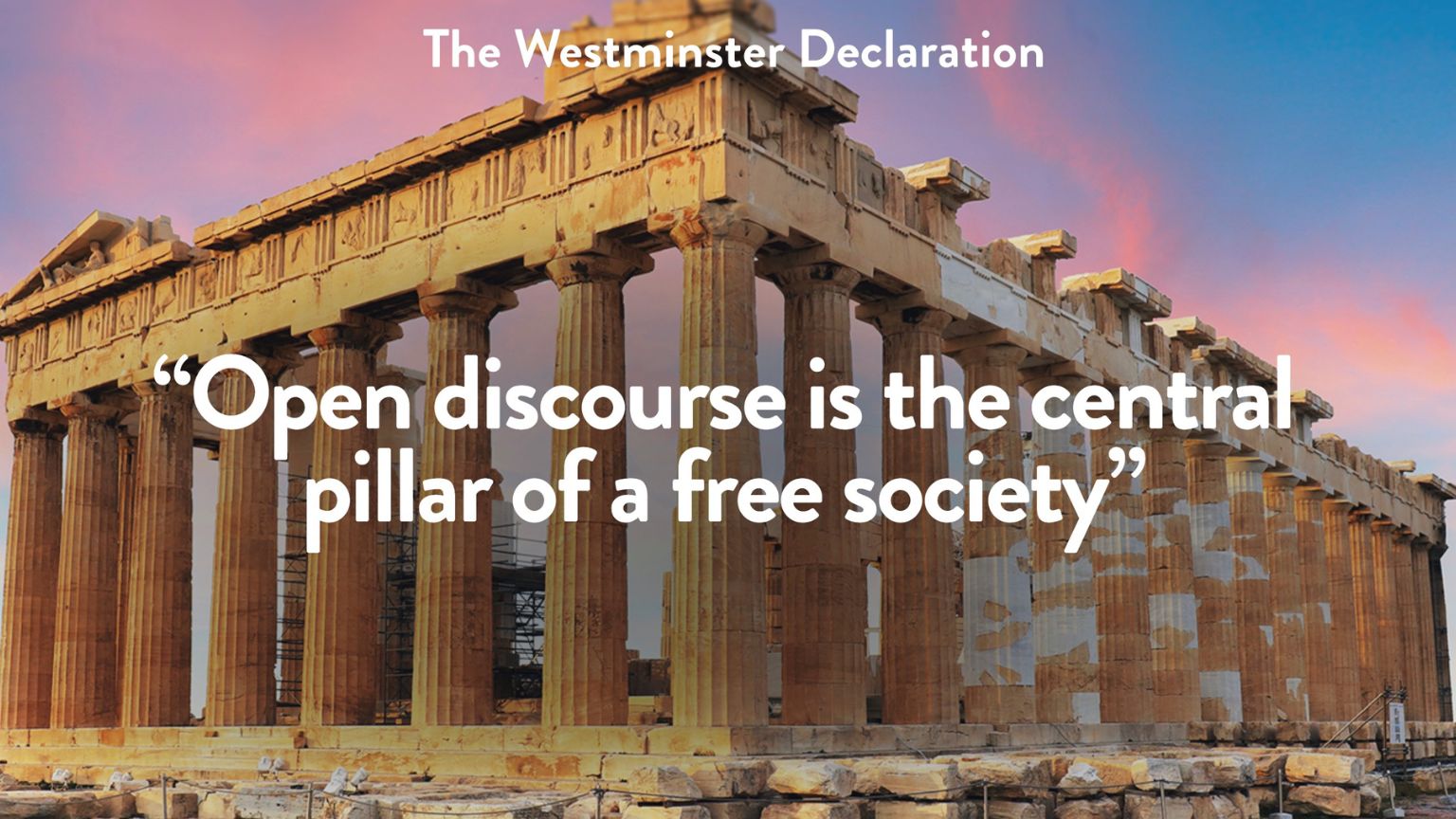The rise – in the West – of online censorship, exactly what it does, and how, has been well documented over the last half a decade now.
But beyond voicing an opinion that – due to said censorship – might not even reach a wider audience – what were the “peers of the industry” – when it concerned academia, journalism, entertainment, etc., opposed to this dangerous, unprecedented trend – at least where its length and breadth are concerned – supposed to do?
Well, now they have come up with one idea – first, (somewhat reluctantly) branding what’s been happening as a “Censorship Industrial Complex” (which, though it sounds bombastic, on second thought – might easily be exactly what it is).
The initiative is called, the Westminster Declaration, and has drawn support from dozens of public figures, with journalists and whistleblowers like Julian Assange, Edward Snowden, and Matt Taibbi among them – but also big entertainment industry names like US actor and filmmaker Tim Robbins, Oliver Stone, legendary UK comedian John Cleese, former ACLU President Nadine Strossen, scientists like Richard Dawkins – and even Greece’s finance minister from the times of the country’s financial collapse, Yanis Varoufakis.
Think what you will of any of these people – including economist Jeffrey Sachs, and philosopher Slavoj Zizek – but you cannot say they are speaking out of turn here. Each has a rich personal and professional experience that should make others at the very least pay attention to what they agreed was their common denominator, regarding the ills of the “Censorship Industrial Complex.”
The declaration is careful to point out that its purposes is to defend “open discourse” as fundamental to any free society – and also that those who chose to put their names to it come from very different ideological and political backgrounds – yet are “united” by their “commitment to universal human rights and freedom of speech” – and hence, “deeply concerned about attempts to label protected speech as ‘misinformation’, ‘disinformation’, and other ill-defined terms.”
It is ironic – and harmful – that so much talk about speech has indeed been “abused” – as the declaration points out. The result is potential censorship of basically anyone – given the “right” circumstances.
“Such interference with the right to free speech suppresses valid discussion about matters of urgent public interest, and undermines the foundational principles of representative democracy,” the declaration reads.
The text highlights the different methods – at times “direct government policies” – and other times – “visibility filtering, labeling, and manipulation of search engine results.”
The proposed is a 3-point solution:
“We call on tech corporations to undertake to protect the digital public square as defined in Article 19 of the UDHR and refrain from politically motivated censorship, the censorship of dissenting voices, and censorship of political opinion,” the signatories say, adding:
“We call on tech corporations to undertake to protect the digital public square as defined in Article 19 of the UDHR and refrain from politically motivated censorship, the censorship of dissenting voices, and censorship of political opinion.”
“And finally, we call on the general public to join us in the fight to preserve the people’s democratic rights. Legislative changes are not enough. We must also build an atmosphere of free speech from the ground up by rejecting the climate of intolerance that encourages self-censorship and that creates unnecessary personal strife for many. Instead of fear and dogmatism, we must embrace inquiry and debate,” the Westminster Declaration reads.








